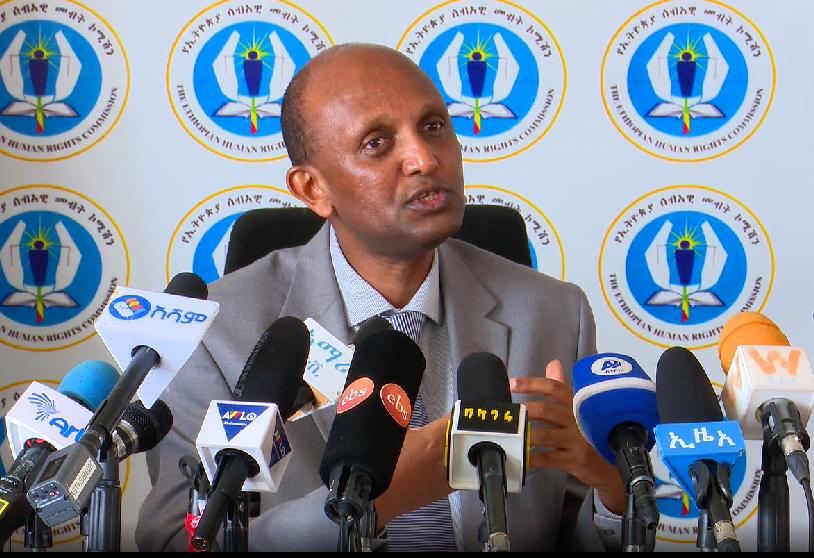Crimes Against Humanity Committed in Oromia Region: Findings of Ethiopian Rights Commission - ENA English
Crimes Against Humanity Committed in Oromia Region: Findings of Ethiopian Rights Commission

Addis Ababa,January 1/2021(ENA) The Ethiopian Human Rights Commission (EHRC) revealed today that crimes against humanity have been committed by individuals and groups, who directly participated in the violence and security crisis in Oromia Regional State after the death of artist Hachalu Hundessa on 29th June, 2020.
Briefing the media, EHRC Chief Commissioner Daniel Bekele pointed out that some 123 people were killed and more than 500 injured in the tragic ethnic and religious motivated carnage that also displaced thousands from their homes.
In its 60 pages report of the six-month long investigation, the commission stated that the abuses were committed between June 29 and July 2, 2020
The findings show that the attackers moving in groups used axes, knives, machetes, sticks and other weapons to kill and injure civilians in gruesome ways that involved beheadings and torture.
Chief Commissioner Daniel said the investigation which was conducted in 40 different localities of Oromia Region over the course of several days has proved that crimes against humanity were committed in these massive ethnic-based and religious motivated attacks.
According to him, the findings show that the attacks meet the elements of crime against humanity as they involved large numbers of people organized in groups, having selected their victims on the basis of their ethnicity or religion when conducting widespread and systematic attacks in several different areas over the consecutive three days.
“What our investigation has firmly proved is that crimes against humanity were committed by individuals and groups by targeting Ethiopian Orthodox Church followers and mainly ethnic Amharas. Civilians and innocent people were the main targets of the attack. Not only that, but the attack was carried out in a highly organized and systematic manner which was supported on social and mainstream media outlets,” the chief commissioner elaborated.
Furthermore, the report also states that security forces had the challenging task of restoring order in the face of such widespread violence, the proportionality of the force employed in some contexts is highly questionable.
According to the report, 328 people were interviewed, including victims, government officials and members of the public.
On his part, Mizanne Abate, a member of the Ethiopian Human Rights Commission and a participant in the investigation, recommended that the government has to design a strong strategy that could stop conflicts based on ethnicity.
The government bodies in particular need to prevent such atrocities which have become a pressing issue in the country.
Mizanne stressed that such problems will develop into genocide unless the government takes swift measures and engages into a large-scale law enforcement activity to end ethnic-based violence.
He finally recommended that the bodies involved in the crimes in Oromia Regional State be brought to justice.